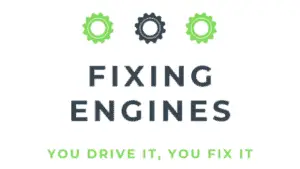A smog check or an emissions test is a measurement of your vehicle’s engine emissions. Smog checks first started being enforced by the federal government in 1977, as a means of reducing the overall amount of harmful emissions that cars of the time were producing by limiting the amount of emissions that any one car could produce.
In most cases, you’ll need to get periodic smog checks for your car if you want it to pass a safety inspection and continue using it; however, not every state requires you to do so. If you live in a state that requires smog checks, you will usually need to go through one annually or biannually.
In this article, we’ll go into more detail about the different smog check laws in each state, as well as what you need to know about smog checks in general.
How to Know if Your Car Needs a Smog Check
Whether or not your car requires a smog check at any point in time largely depends on what state you live in, as well as what kind of vehicle you drive. Many states require vehicles of a certain age to receive periodic smog checks, whereas other states don’t require any kind of smog checks at all.
The best way to know for sure what the specific laws in your state are in regards to smog checks is to look them up yourself. Your state’s DMV website will most likely have whatever information you need on this subject.
Which States Require a Smog Check?
At this time, 33 states require your vehicle to pass a smog check before it can be deemed road-legal. However, in some of these 33 states, a smog check is only mandatory within certain cities or counties.
Some states used to require smog checks, but no longer do. Minnesota and Florida are two examples of such states.
These are the states where a smog check is mandatory throughout the entire state:
- California
- Connecticut
- Delaware
- Massachusetts
- New Hampshire
- New Jersey
- New York
- Washington, D.C.
How Often Do You Need a Smog Check?
Again, this depends on what state you live in. Usually, you’ll need to get a smog check either annually or biannually, and you might not need to get a smog check at all if your vehicle is under or over a certain age or if it is a type of vehicle that is exempt from emissions testing.
The specific regulations of each state’s smog checks vary considerably, so again, check with your state’s DMV to see what the smog check laws are in your area.
How Long Does a Smog Check Take?
Luckily, it doesn’t take too long to complete a smog check in most cases; only about 20-30 minutes. A typical smog check consists of three stages.
The first stage of the smog check involves a visual inspection of your car; the technician will check to make sure that everything is connected properly and that your car isn’t emitting excessive amounts of smoke from the exhaust pipe.
The second stage involves connecting a computer to your car’s OBD system and checking for any fault codes or other indicators that your vehicle isn’t running properly.
Finally, the technician will test your exhaust gas itself in order to measure the amount of harmful compounds within it. They’ll be looking for elevated levels of carbon monoxide, nitrides, and fluorocarbons.
How Much Does a Smog Check Cost?
The cost of a smog check depends on a few factors, including where you live and the type of smog check you need. In general, you can expect to pay between $30 and $90 for a smog check.
You may also have to pay another $10 or so for some additional fees, which include your state’s certification fee as well as an electronic transmission fee (ETF). The ETF is included to cover the cost of transmitting the data from your smog check to your local DMV.
What Will Make You Pass or Fail a Smog Check?
Your car will pass a smog check if it does not display any check engine lights, if the exhaust coming from the tailpipe is a normal color, if there’s nothing visibly wrong with the car, and if your car isn’t producing too many environmentally hazardous compounds in its exhaust. Basically, if your car is working as it should, odds are you’ll pass the smog test.
There are several things that can potentially cause you to fail a smog check. Obviously if your check engine light is on, that’s an immediate failure. Any error codes from your OBD system will also make you fail a smog check, as will the detection of excessive amounts of harmful compounds in your exhaust gas.
Other things that might make you fail a smog check include a leaky gas cap, a dirty air filter, malfunctioning spark plugs, or problems with your catalytic converter.
Final Thoughts
If you live in a state that requires smog checks, it’s always best to make sure that your car is running properly before bringing it in for such a test. If you think there’s a possibility that your car won’t pass a smog check, we’d advise you to bring your car into a garage and get a tune-up beforehand.
Once more, if you’re unsure of what your state’s policy is regarding smog checks, you can easily find this out by checking in with your local DMV.

